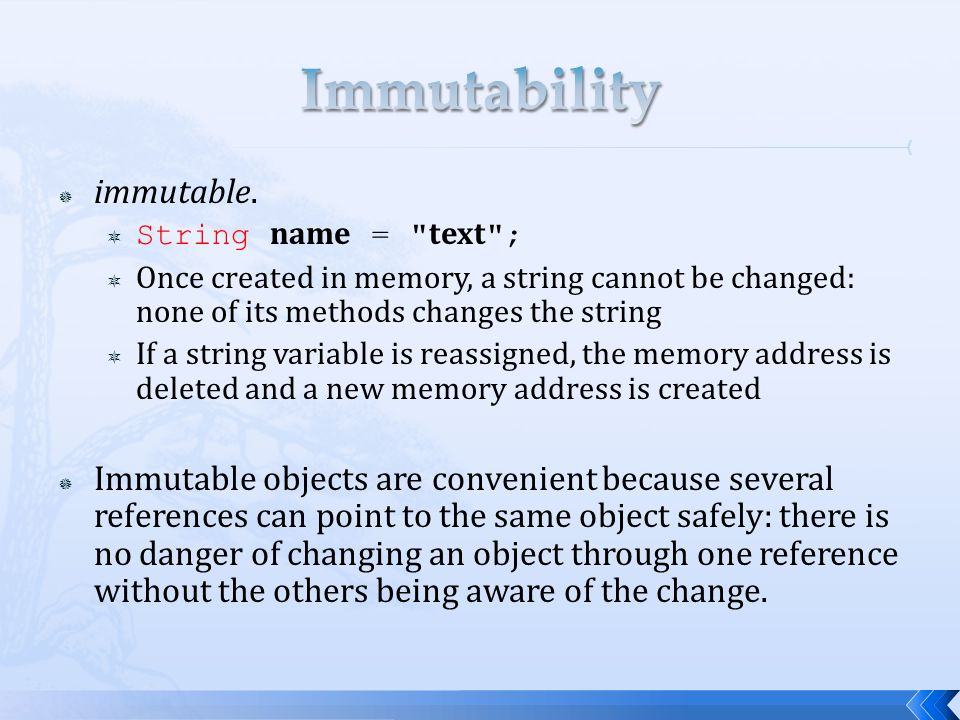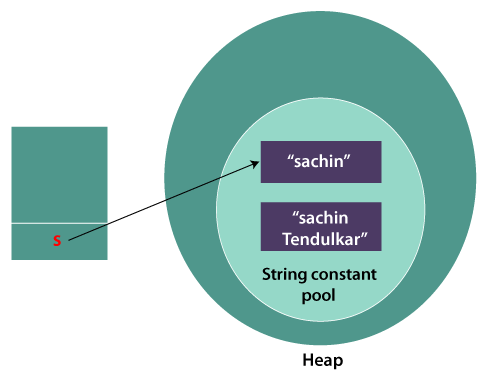Why Are Strings Immutable in Java? Comprehensive Guide for Beginners
Why Are Strings Immutable in Java? Comprehensive Guide for Beginners
Blog Article
Unalterable Strings: A Key Part in Ensuring Information Consistency and Dependability
In the realm of data monitoring, the significance of immutable strings can not be overemphasized. These unchanging series of personalities play a pivotal function in maintaining the stability and accuracy of details within systems. By keeping a state of immutability, data consistency is guaranteed, promoting a foundation of integrity whereupon crucial procedures count. The principle of unalterable strings goes beyond simple triviality; it is a linchpin in the complex web of data administration. As we check out the benefits, application strategies, and functional applications of immutable strings, a more clear image emerges of their essential nature in protecting the digital landscape.
The Principle of Immutable Strings
Immutable strings, a basic concept in programming, refer to strings that can not be modified once they are produced. In essence, as soon as a string worth is appointed, any type of procedure that appears to modify the string in fact develops a new string. This immutability makes sure data uniformity and reliability in applications, as it protects against unforeseen changes to the initial data.
Advantages in Information Consistency

Data uniformity is vital in various aspects of software growth, consisting of data source administration, multi-threaded settings, and distributed systems (Why are strings immutable in Java?). Unalterable strings contribute dramatically to achieving this uniformity by stopping data corruption because of concurrent gain access to. In circumstances where several processes or strings engage with the same information concurrently, unalterable strings work as a protect versus race conditions and synchronization issues
Additionally, the immutability of strings streamlines debugging and screening processes. With immutable strings, designers can trust that once a string is established, it will continue to be unchanged, making it simpler to trace the source of mistakes and making certain that test instances produce consistent outcomes. This reliability in information managing ultimately causes much more durable and stable applications.

Executing Unalterable Strings
Making certain the immutability of strings calls for a thoughtful method to their implementation in software development. One crucial approach is to make string classes in a way that protects against alterations when a string things is developed. By making strings unalterable, developers can boost data uniformity and dependability in their applications.
To apply unalterable strings effectively, developers should favor creating brand-new string things instead than customizing existing ones. This technique makes sure that once a string is assigned a worth, it can not be transformed. Furthermore, any procedure that shows up to change the string must create a new string with the preferred modifications as opposed to changing the original.
Additionally, making use of unalterable strings can streamline concurrency monitoring in webpage multi-threaded environments. Considering that unalterable strings can not be changed after development, they can be securely shared among multiple threads without the threat of data corruption.
Duty in Integrity Guarantee
In software application advancement, the application of immutable strings plays a crucial role in guaranteeing the dependability of information procedures. Immutable strings, when developed, can not be customized, ensuring that the data they represent remains constant throughout the application's implementation. This immutability residential or commercial property offers a level of assurance that the information being processed will certainly not be inadvertently changed, bring about unanticipated results or errors in the system.
By incorporating immutable strings into software design, designers can improve the dependability of their applications by minimizing the risks related to mutable data - Why are strings immutable in Java?. Unalterable strings assist in protecting against data corruption or unplanned alterations, which can be specifically essential when managing sensitive details or when data integrity is extremely important
In addition, using immutable strings simplifies simultaneous processing, as numerous strings can safely gain access to and share string data without the risk of one string changing the content while another reads it. This element adds dramatically to the general reliability of the software application system, making certain foreseeable and regular actions in information dealing with operations.
Applications and System Integration
The seamless assimilation of unalterable strings into various applications and systems is crucial for making sure robust information uniformity and integrity throughout diverse technical environments - Why are strings immutable in Java?. Immutable strings play an important duty in boosting the stability More Info of information exchanges and interactions within complicated software application environments. By incorporating immutable strings right into applications, developers can alleviate the threats connected with data tampering, unapproved adjustments, and unintended alterations, consequently strengthening the total protection position of the system
Immutable strings can improve interoperability between diverse systems by supplying a standardized style for information representation, allowing a lot more effective data handling and exchange protocols across interconnected systems. By taking on immutable strings in applications and system assimilation procedures, companies can fortify their information facilities and support the reliability and uniformity of their details assets.
Conclusion
In conclusion, unalterable strings play a crucial role in keeping data uniformity and dependability in numerous applications and system integrations. By ensuring that strings can not be altered as soon as created, the honesty of data is protected, lowering the danger of incongruities and errors. Carrying out immutable strings can dramatically boost the dependability of systems, inevitably bring about more trustworthy and accurate data processing.

Report this page